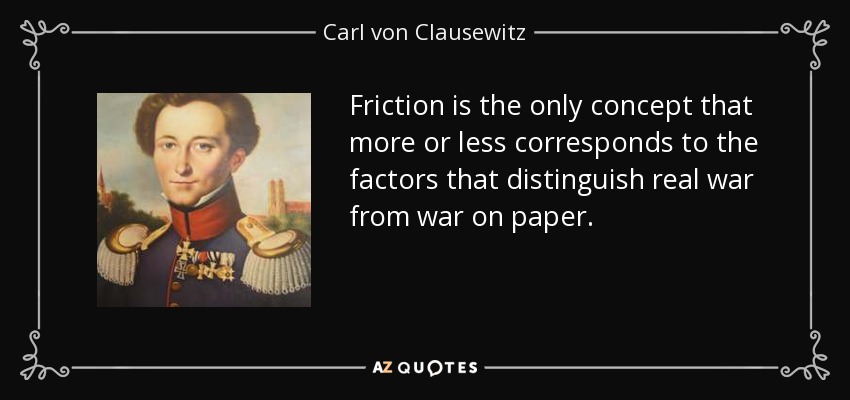 Imagine a number of families—say, ten of them. Some with children and the elderly, some without. Living in the same town, they decide to spend a day together. Fun for the kids, relief for the adults who will not have to ensure that their offspring get bored. Meeting point is at 1100 hours, at place X where there is good parking. From there they plan to drive fifty miles to the beach, arriving at 1200. What could be simpler? But no. Family A finds that the GPS of their car (old and somewhat battered) refuses to work and so informs the rest (some get the message, some don’t). Family B cannot leave their home before grandfather, who is a widower and had lost his false teeth, finds the other set he owns.
Imagine a number of families—say, ten of them. Some with children and the elderly, some without. Living in the same town, they decide to spend a day together. Fun for the kids, relief for the adults who will not have to ensure that their offspring get bored. Meeting point is at 1100 hours, at place X where there is good parking. From there they plan to drive fifty miles to the beach, arriving at 1200. What could be simpler? But no. Family A finds that the GPS of their car (old and somewhat battered) refuses to work and so informs the rest (some get the message, some don’t). Family B cannot leave their home before grandfather, who is a widower and had lost his false teeth, finds the other set he owns.
Everyone does/do their best to be on time, but not all succeed. All around, children quarrel or must faire pipi, causing a delay. Either they are looked after, or there is going to be an even longer one. Messages—this, after all, is the age of WhatsApp—are passed from one group member to another, causing confusion all around. Exactly where is that left turn you have been talking about? Some arrive, but some do not. Some messages are correctly understood, some not. Assuming every family contacts every other just once, there are going to be 90 of them in all. In practice the number is likely to be considerably larger.
This is friction. Few of us have not experienced it more or less often; the larger the number of those involved, the worse thing are likely to be. Friction in ordinary life can be bad enough, causing the best-laid plans to go awry. Friction in war is two, ten or twenty times worse, at times to the point where it decides the fate (as Napoleon said) of crowns dynasties, and empires. In mid-June 1815 his communications with Field Marshal Grouchy failed. As a result, Grouchy’s corps spent the 18th marching to and fro and, doing so, missed the battle of Waterloo much in the same way as General Stuart’s cavalry did at Gettysburg forty-eight years later. In both cases, and in spite of historians’ attempts to unravel it, the exact chain of cause and effect remains obscure. But certainly friction had everything to do with it.
Two main reasons explain why friction is so much greater in war than in peace. The first is the extraordinary demands war makes both on the spirit and, often enough, the physique of those who engage on it. In these respects, the only equivalent is some natural disaster such as an earthquake or a flood. But even such events tend to be over in minutes or hours. Either you die at once, as the citizens of Pompeii did, or the danger recedes. Seldom does it last for weeks or months, let alone, years; people either adjust or move.
To repeat, war decides the fate of crowns, dynasties and empires. The burden of responsibility is crushing and can easily cause those who bear it to go off the rails. As happened, for example, during the last days of World War I when the de facto chief of the German general staff, General Erich Ludendorff, told the Kaiser that defeat was staring the country in the face and that the army could not wait “even 48 hours” for a ceasefire to be arranged. Yet Ludendorff at the time was comfortably ensconced in his headquarters way out of reach form the front. Those further down the hierarchy were often not so lucky.
The second reason why friction tends to be so much greater in war than in peace is that we are fighting an enemy who is deliberately doing whatever he can to increase it. Too often, with success. The first step is to try to divine what the enemy is expecting and then do the opposite. When you are strong, confuse the enemy by pretending to be weak. When you are weak, confuse him by pretending to be strong. But take care; such measures always come at a price. Troops sent on a diversion will not be available for your main thrust. The least- defended approach is often the most difficult one to take, and vice versa. Worse still, he who tries to confuse the opponent may very well end up by becoming confused himself. As, it is said, not seldom happens in espionage etc.
The measures needed to guard against friction are often well understood. Good intelligence, especially of the kind that succeeds in putting you in the enemy’s shoes and, by doing so, anticipate his moves. Good organization, good discipline, good training, good security. Good communications, including redundant ones in case some are lost. Superior communications-technology with an emphasis on reliability, ease of use, and secrecy. Such measures can and often do mitigate friction. They cannot, however, eliminate it. Nor is there any reason to think that there was less of it in the highly disciplined Roman legions than in today’s most advanced armies.
So it has been in the past. And so, regardless of the tsunami of wonderful new weapons about which are told almost day by day, it will remain in the future too.

 Note: This litte essay was first posted on this blog on 22 December 2022, i.e ten months after Putin started the Russo-Ukrainian War. Since then another nine months have passed. Curious to know how well my original remarks have held up, I re-read and reposted it here. Word by word.
Note: This litte essay was first posted on this blog on 22 December 2022, i.e ten months after Putin started the Russo-Ukrainian War. Since then another nine months have passed. Curious to know how well my original remarks have held up, I re-read and reposted it here. Word by word.